May 14, 2025 | 10:47 GMT +7
May 14, 2025 | 10:47 GMT +7
Hotline: 0913.378.918
May 14, 2025 | 10:47 GMT +7
Hotline: 0913.378.918
The Livestock Institute in Hanoi conducted the "Innovation Alliance for Biosecure Pig Farming in Vietnam" launch meeting on June 26. The organization aims to foster innovation in biosecure pig farming, address disease outbreaks, generate employment opportunities for individuals, and work toward a secure and sustainable future for the pig farming industry in Vietnam.
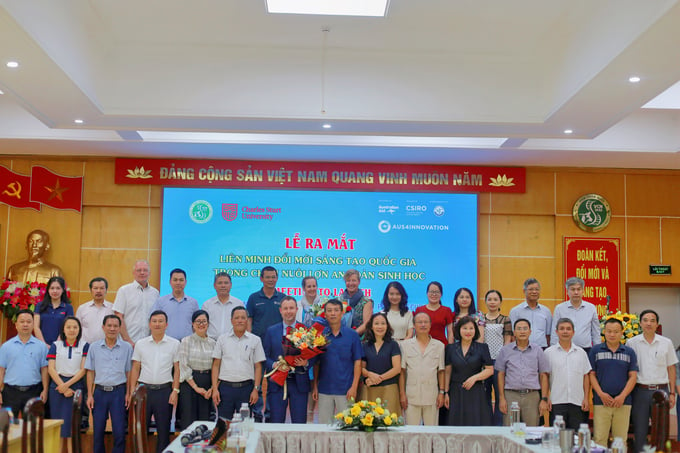
The launch of the Innovation Alliance for Biosecure Pig Farming brought together researchers, policymakers, businesses, and farmers.
Dr. Pham Cong Thieu, the Director of the Livestock Institute, underscored the following: In the context of the intricate developments of African Swine Fever, biosecure farming is the most effective approach to mitigate the risks and damages associated with this disease, particularly for the swine farming industry in Vietnam.
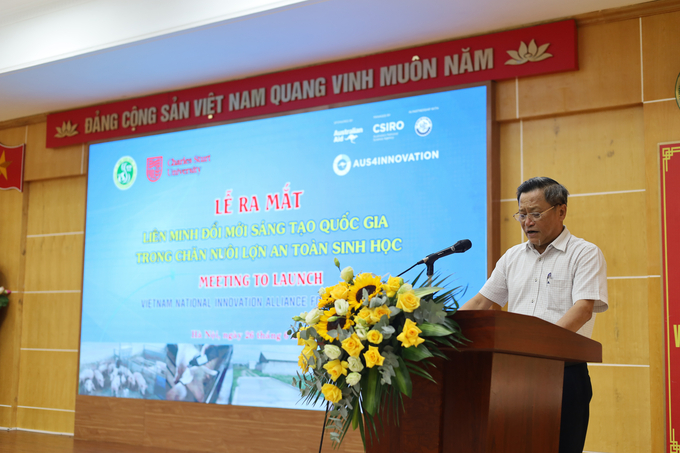
Dr. Pham Cong Thieu, Director of the Livestock Institute, shared insights on biosecurity in Vietnam's pig farming industry.
Pig farming has consistently occupied a prominent position in Vietnam's livestock sector, and pork remains the primary food item in the Vietnamese diet.
However, the majority of current pig farming facilities are still modest and medium-sized household operations. It is imperative to increase awareness of the significance of biosecure pig farming among producers, as it is the correct course of action.
In livestock farming, biosecurity is a set of practical measures that are designed to prevent and restrict the infiltration and spread of infectious diseases and pathogens into and out of agricultural facilities.
This disease has caused substantial damage, particularly to small-scale agricultural households, since 2019, primarily as a result of the inadequate implementation of biosecurity measures.
Consequently, it is imperative to improve the capacity of Vietnam's swine farming industry to combat African Swine Fever.
The Innovation Alliance for Biosecure Pig Farming was established as a consequence of a partnership between the Livestock Institute, which is under the Ministry of Agriculture and Rural Development, and the Australian Government's Aus4Innovation program.
The Alliance's objective is to establish a platform that will facilitate innovation in the face of the pig farming industry's challenges, promote biosecure farming, and improve the industry's resilience and recovery capacity in the face of external disruptions, including diseases, natural disasters, and climate change.
The Alliance's establishment and the subsequent research results serve as a testament to the dedication to fortifying biosecurity as a primary defense against African Swine Fever.
The research has collected data and evaluated the resilience of the swine value chain against African Swine Fever, utilizing a multidimensional approach to identify gaps in prevention. At the occasion, Mr. Andrew Goledzinowski, the Australian Ambassador to Vietnam, underscored the importance of this collaboration: "The Innovation Alliance for Biosecure Pig Farming is a critical step toward a sustainable and secure future for the pig farming industry in Vietnam..."
In addition to enhancing the livelihoods of farmers, the implementation of innovative biosecurity practices also guarantees the food supply chain's resilience and assists in the mitigation of environmental impacts. Additionally, the Alliance's financial and technical support from Australia serves as a testament to Australia's dedication to Vietnam as a dependable partner in the areas of science and technology and innovation, thereby fortifying the strategic partnership between our two nations.
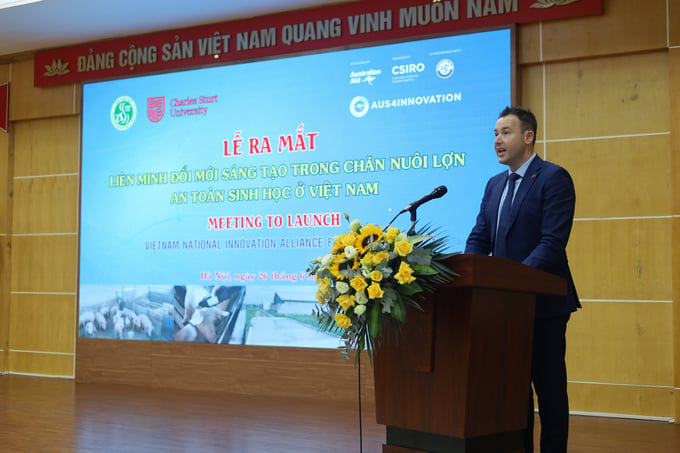
Dr. Kim Wimbush, Counselor of CSIRO in Vietnam and Director of the Aus4Innovation Program, is committed to supporting Vietnam in developing a sustainable agriculture sector.
Dr. Kim Wimbush, the Director of the Aus4Innovation Program and Counselor of CSIRO in Vietnam, disclosed the strategies of Aus4Innovation to support the Alliance: "We have a comprehensive strategy to support the Alliance through the Aus4Innovation program, which includes financial assistance, the provision of experts, research consulting, and specific deployment activities." To ensure the successful commercialization of research results between Vietnam and Australia, we will also encourage interactions between Alliance members and elements within the innovation ecosystem.
In concurrence with the Ambassador and Counselor, Dr. Pham Cong Thieu, Director of the Livestock Institute, underscored that the Alliance's establishment represents a constructive stride toward the enhancement of Vietnam's pig farming standards. The research we have conducted has significantly contributed to the collective endeavor to protect the pig farming industry by providing critical data for the development of vulnerability and resilience assessment tools.
The research was conducted on 160 pig agricultural households in three provinces: Ha Nam, Hoa Binh, and Bac Giang. The highest risk area was identified as Hoa Binh. The results of the analysis suggest that the susceptibility to infection is inversely proportional to the income proportion from pig farming in the total income of agricultural households. This information serves as a foundation for future biosecurity policies and practices.
The Director of the Livestock Institute aspires to establish an innovative alliance in biosecure pig farming in Vietnam by facilitating the exchange of knowledge and experiences among experts, scientists, managers, and farmers through the Alliance's inauguration. This is not only a significant advancement in agricultural methods and technology, but also a steadfast dedication to the industry's sustainable development, which will improve the quality of products, safeguard public health, and increase the economic efficiency of farmers.
Translated by Linh Linh
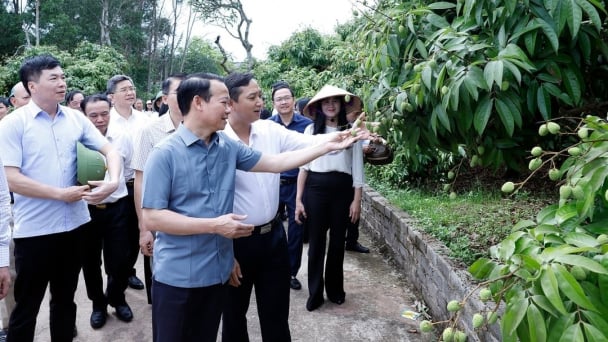
(VAN) Agriculture and environment sector experienced a 3.74% increase in growth during the first four months of 2025, with exports surpassing 21 billion USD. This growth was sustained by effective reforms and a trade surplus.
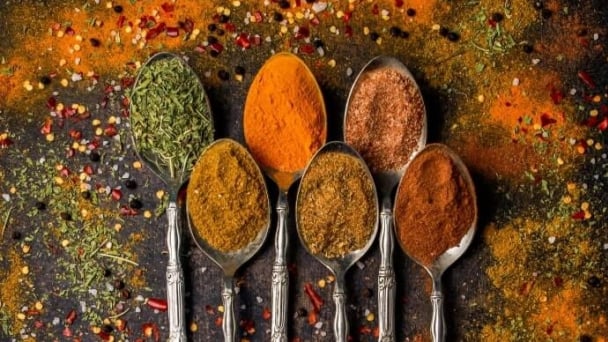
(VAN) Taiwan offers a promising market for Vietnamese turmeric; however, it enforces stringent standards, particularly concerning residual additives, colourants, and substances with potential carcinogenic effects.

(VAN) Through activities at Vietnam Sea and Island Week 2025, solutions will be developed to fully harness the potential and advantages of Vietnam's marine economy.
![Multi-channel, multi-directional Vietnamese agricultural markets: [4] EVFTA and the 0% tax advantage](https://t.ex-cdn.com/nongnghiepmoitruong.vn/608w/files/linhnhp/2025/05/12/day-chuyen-che-bien-tom-tai-1-nha-may-cua-sao-ta-205536_359-1044193.jpg)
(VAN) The near-complete elimination of import tariffs on Vietnamese goods makes the EVFTA the highest commitment the EU has ever made to a partner in its signed trade agreements.
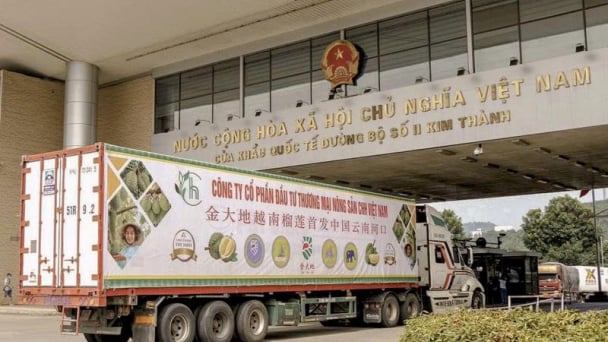
(VAN) Deputy Minister Phung Duc Tien hopes that China will facilitate the entry of Vietnamese agricultural products into its market and accelerate customs clearance at border gates.
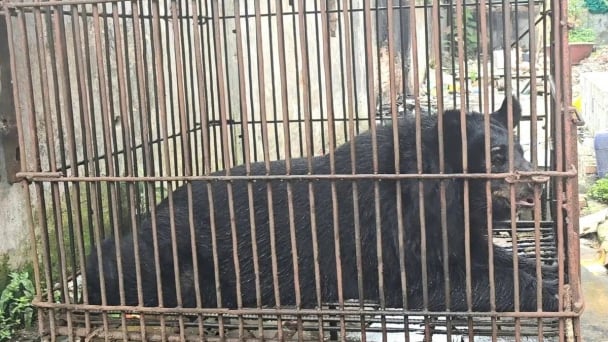
(VAN) On May 10, the Animals Asia Foundation and the Hai Phong Crop Production and Forest Protection Department successfully rescued a nearly 20-year-old sun bear that was being kept by locals.

(VAN) Does Hungary have an opportunity to expand poultry production in the coming years despite the pressure from avian influenza and challenges of the trade war?